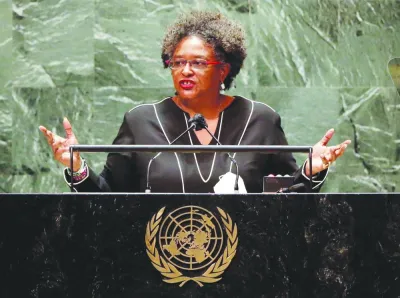Boeing is forecasting that China will need 8,560 new commercial airplanes through 2042, driven by economic growth well above the global average and increasing demand for domestic air travel. China's commercial airliner fleet will more than double to nearly 9,600 jets over the next 20 years, according to Boeing's Commercial Market Outlook (CMO), the company's long-term forecast of demand for commercial airplanes and related services.With its ongoing recovery of air travel, China will account for one-fifth of the world's airplane deliveries in the next two decades, according to the CMO. China's domestic aviation market also will be the largest in the world by the end of the forecast period, helping power demand for 6,470 single-aisle airplanes such as the Boeing 737 MAX family."Domestic air traffic in China has already surpassed pre-pandemic levels and international traffic is recovering steadily," said Darren Hulst, Boeing vice president, Commercial Marketing. "As China's economy and traffic continue to grow, Boeing's complete line-up of commercial jets will play a key role in helping meet that growth sustainably and economically."Boeing forecasts that in addition to the demand for single-aisle jets, Chinese carriers will require 1,550 widebody airplanes mainly to support a growing network of international routes.Fleet growth will drive two thirds of forecast deliveries in China, while the remainder will replace older jets with modern airplanes that increase efficiency and reduce CO2 emissions.Continued growth in e-commerce and express shipping will drive demand for 190 new freighter deliveries.Boeing expects China will require 433,000 new aviation personnel – including 134,000 pilots, 138,000 technicians and 161,000 cabin crew members – to serve its growing market.China's commercial fleet will generate demand for $675bn in aviation services including maintenance, repair, training and spare parts.Airbus, the European aircraft manufacturer, agrees. The plane maker recently raised its forecast for aircraft demand in China, saying that over the next 20 years, Chinese carriers are expected to acquire 9,440 new airplanes to meet expanding commercial air travel demand.In the next two decades, Airbus expects China's demand will account for 23% of total new airplanes required globally, reflecting the country's market rebound and further evolution of its fleets following the Covid-19 pandemic, according to Airbus' latest forecast."In recent years, the focus of the global aviation industry has gradually shifted eastward to China and the Middle East. By 2042, the Asian market, particularly China, India and the Middle East, will show a strong demand for air travel," said Francois Cabaret, head of global market forecast at Airbus.Chinese airlines’ need to renew their fleets of aircraft could offer an opportunity for Boeing, but ongoing US tensions and the launch of China’s first domestically built narrowbody passenger jet may undermine its efforts to compete with European rival Airbus and pick up new orders in the aviation market.Airbus also noted that there is no direct competition between high-speed trains and the air travel market. For instance, Japan and France both have developed high-speed train networks and are complementary to the civil aviation sector. For transportation between Beijing and Shanghai, demand for both high-speed trains and air travel is growing quickly.Last year, Boeing said it was disappointed that “geopolitical differences continued to constrain US aircraft exports” in response to China’s three biggest state-owned airlines buying 300 jets from Airbus.China was the first country to ground the 737 MAX in March 2019 after 346 people died in two crashes in Indonesia and Ethiopia less than five months apart, and Boeing’s flagship narrowbody passenger jet only returned to service this year.Meanwhile, demand for airfreight is growing consistently. By 2042, the global fleet size of cargo aircraft in service is likely to reach 3,230, including 920 newly manufactured planes and 1,590 freighters that are converted from passenger aircraft, Airbus projected."During the pandemic, the demand for air cargo rebounded strongly. In the post-pandemic era, the demand has resumed to the original range. Airbus is in discussions with logistics, air cargo and e-commerce companies for potential co-operation. We are highly optimistic about the growth potential of China's airfreight market," said Liu Li, senior vice-president of Airbus and head of commercial for Airbus China.In China, Guangzhou (CAN) remains the largest airport in China with 4.4% of the country's domestic market, and 124k more seats than the next largest airport, Beijing (PEK). Domestic capacity at CAN is now 11.1% higher than October 2019.Combined, domestic capacity at Beijing Capital (PEK) and Beijing Daxing (PKX) was 5.5mn seats, 31% more than in October 2019.China Southern remains the largest airline for domestic capacity in China, followed by China Eastern. Between them, these airlines continue to operate almost a third of domestic departing seats.Ranked third in the domestic market for capacity, Air China continues to grow at the greatest rate with 44% more seats than in October 2019. Sichuan Airlines, China Eastern and China Southern have also grown capacity since October 2019 by 18%, 17% and 16% respectively.Beijing Capital to Shanghai remains the busiest domestic route in China (despite a 5% decrease vs October 2019).Chinese carriers' international capacity increased by 9% this month; adding 407k seats between October 2023 and September 2023, bringing the total number of seats flown to nearly 5mn.International airline capacity is now 57% of where it was in October 2019 and makes up 6.4% share of all Chinese airline capacity.International airline capacity is still 43% lower than October 2019 levels. South Korea remains the busiest international route with over 76k more seats in October 2023, an increase of 13% vs September 2023.Capacity to Thailand increased by 16% vs September 2023, following declines in previous months.The author is an aviation analyst. Twitter handle: @AlexInAir












